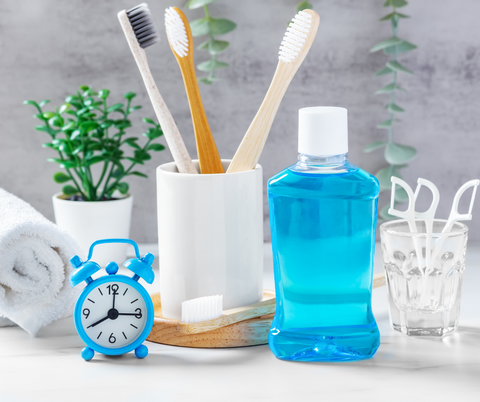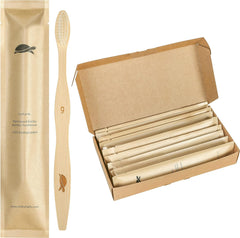 There are a few things that everyone should know about mouth bacteria and the related mouthwash myth. For starters, inside your mouth are colonies of microorganisms. These are more commonly known as bacteria. At any one time, you may have between 30 and 70 varieties of mouth bacteria.
There are a few things that everyone should know about mouth bacteria and the related mouthwash myth. For starters, inside your mouth are colonies of microorganisms. These are more commonly known as bacteria. At any one time, you may have between 30 and 70 varieties of mouth bacteria.Though unpleasant to think about, most of the bacteria inside your mouth is perfectly harmless. In fact, some strains, called probiotics, can actually be good for us. These assist the breakdown and digestion of food. Studies have shown that other strains can also protect our teeth and strengthen our gums.
However, some species of bacteria do the opposite. The unwanted types of bacteria may cause bad breath, tooth decay, and disease. For example, streptococcus mutans thrives on the sugars and starches in your diet. When the bacteria consumes these macronutrients, it produces acids that erode your tooth enamel. This leaves your teeth extremely vulnerable to decay. Another bad oral bacteria is porphyromonas gingivalis. Research has linked this bacteria to periodontitis, which may ultimately lead to oral pain and loss of adult teeth.
Many people look to mouthwash to eliminate the harmful strains of bacteria. While it is true that most over-the-counter mouthwashes can kill oral bacteria, this benefit does not come without significant harm. One major problem is that mouthwash cannot discriminate between good and bad bacteria. When you swish, both types are eliminated, compromising the bacterial balance inside your mouth. This can leave your mouth unprotected and lead to periodontal disease.  Another big problem with conventional mouthwash is the number of chemicals involved. One ingredient commonly found in mouthwash is chlorhexidine, which research published in the Journal of Free Radical Biology and Medicine links to increased blood pressure through the destruction of nitrate-reducing bacteria, which normally encourages blood vessels to relax. Over time, this can also lead to oral infections, heart disease, and even stroke. It is for this reason that Mayo Health describes oral health as “a window to your overall health."
Another big problem with conventional mouthwash is the number of chemicals involved. One ingredient commonly found in mouthwash is chlorhexidine, which research published in the Journal of Free Radical Biology and Medicine links to increased blood pressure through the destruction of nitrate-reducing bacteria, which normally encourages blood vessels to relax. Over time, this can also lead to oral infections, heart disease, and even stroke. It is for this reason that Mayo Health describes oral health as “a window to your overall health."
Most mouthwashes also contain alcohol, which not only dries out your mouth but is also linked to oral cancer, according to a comprehensive study in the Australian Dental Journal. A third problem with mouthwash is that it typically contains parabens, which can mimic estrogen in a way that contributes to the growth of breast cancer tumors (Journal of Applied Toxicology, 2012).
A well-rounded natural approach is far best for your long-term oral health. For more personalized advice on maintaining healthy mouth bacteria, schedule a consultation with Rose today.
What To Remember:Good bacteria protects your teeth. |
“There are two things in life that a sage must preserve at every sacrifice, the coats of his stomach and the enamel of his teeth.” ~Henry Lytton Bulwe |

Resources:
6 Myths About Mouthwash That Might Be Hurting Your Health
4 Fascinating Things Scientists Know About the Billions of Bacteria in Your Mouth
Three Types Of Bacteria In The Mouth And What They Do

*This blog contains Amazon affiliate links. The owner of this site may receive a small commission if you click a link and purchase a recommended product.